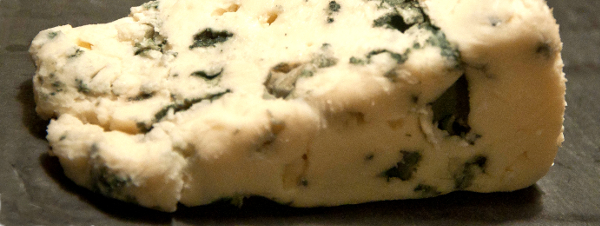Cheesy solution proposed for old French question
Researchers suggest Roquefort cheese can guard against cardiovascular disease, despite its high fat and salt content.
The blue sheep’s cheese is not only delicious and great for warding off children; its mouldy goodness may have powerful anti-inflammatory properties.
A new study has investigated the properties of the blue cheese, which is aged in caves in the south of France, near Toulouse, suggesting they are actually enhanced as the cheese ripens.
A team from a UK-based biotech company says Roquefort should help improve acidic environments of the body, such as the lining of the stomach or the skin surface.
Acidification is also a common process accompanying inflammation such as in joints affected by arthritis or special plaque on an artery wall.
Dr Ivan Petyaev and Dr Yuriy Bashmakov have led a study suggesting the elements could be extracted to fight against cardiovascular disease, or in anti-ageing creams.
The ideas have been detailed in a study published by the Medical Hypotheses journal, titled; “Could cheese be the missing piece in the French paradox puzzle?”
“The anti-inflammatory factors found in these cheeses could be extracted and used independently or as a part of today's pharmaceutical or beauty products,” the researchers wrote.
“We hypothesise that cheese consumption, especially of moulded varieties, may contribute to the occurrence of the ‘French paradox’.”
The paradox in question relates the statistical trend for French people to enjoy good health despite favouring a diet high in saturated fat.
“Observations indicate that consumption of red wine alone cannot explain the paradox and perhaps some other constituents of the typical French diet could be responsible for reduced cardiovascular mortality,” they said.
“Moulded cheeses, including Roquefort, may be even more favourable to cardiovascular health.”
Roquefort is thought to date back before 79AD.
The cheese is rumoured to have been discovered when a young boy was distracted by an attractive girl while eating his lunch in a cave, the boy left for several months and when he returned his cheese had aged into its familiar form.








 Print
Print